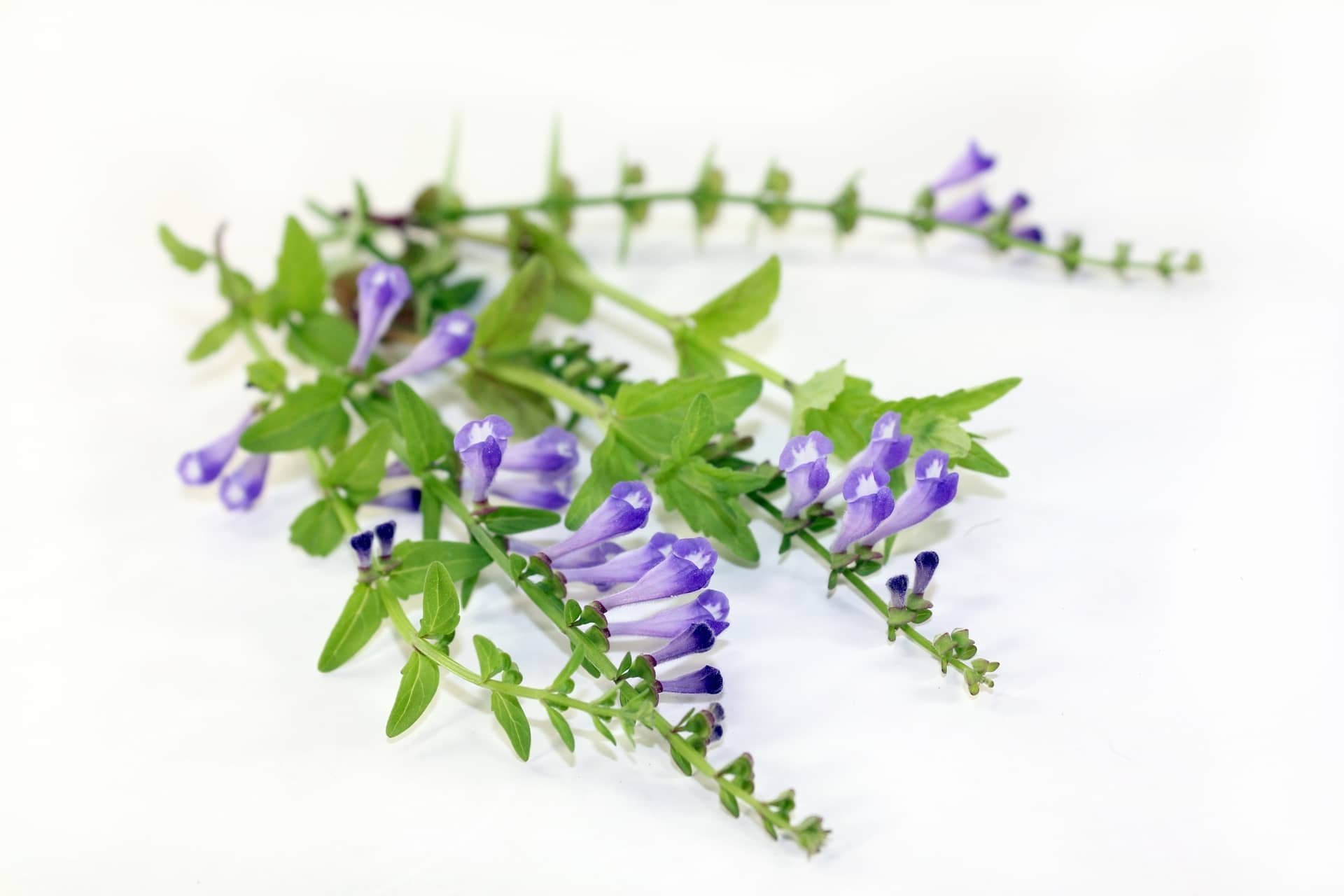
What if your brain could be silently starving for oxygen—without you knowing it? Mini-strokes happen to folks more often than many people realize. And while they may not leave visible scars, hidden damage could be mounting. Now, emerging research reveals that a humble, helmet-shaped flower may hold the key to protecting your brain from this silent assault.
Key Takeaways
-
Skullcap contains brain-protective flavonoids like baicalin and baicalein that can reduce inflammation and oxidative stress after an ischemic event.
-
Studies show skullcap can enhance memory and preserve neuron function, especially in the hippocampus—your brain’s memory hub.
-
Chinese skullcap acts as a natural blood thinner, helping blood flow more freely and potentially reducing the damage of mini-strokes or full strokes.
The Shocking Truth About Mini Strokes and What You Can Do Today
A transient ischemic attack (TIA), or mini-stroke, is a temporary blockage of blood flow to the brain, which can cause symptoms like numbness and confusion but typically doesn't result in lasting damage.
Ischemia refers to a constricting or narrowing of blood vessels that starves the brain (or heart) of blood and oxygen, instead of a vessel blockage. During these episodes, blood supply to the brain gets cut off, causing loss of peripheral vision, numbness and the inability to recognize words or faces.
Doctors have yet to identify a reason for his condition. Unlike a full stroke, there appears to be no lasting damage from these mini-strokes. But anytime there’s an ischemic incident, there’s a possibility of neuron-cell and tissue damage. The body may be able to repair itself quickly. Other times, in the cases of major strokes, it cannot.
New Brain Discovery: A Natural Way To Shield Your Cognitive Function From Damage
Research shows an herb that grows worldwide can minimize damage caused by ischemic attacks. Getting this herb into your daily regimen could help prevent strokes and accelerate healing from more minor strokes. This brain-friendly herb goes by the common name skullcap. It’s so named because it looks like a miniature medieval helmet.
Other common names include Quaker bonnet, blue pimpernel, and mad dog weed. Whatever you call it, one thing’s for sure. The plants in the Scutellariagenus have been used extensively in traditional medicine systems in China, India, Korea, Japan, Europe, and North America for centuries. There are about 300 different species of skullcap, each with varying amounts of flavonoids and other beneficial phytochemicals.1
How Skullcap Protects the Brain
One species of skullcap, Scutellaria baicalensis Georgi, sometimes called Chinese skullcap, has four major flavonoids: baicalein, baicalin, wogonin and wogonoside.
According to a study published in the Journal of Ethnopharmacology, flavonoids extracted from Scutellaria baicalensis Georgi can decrease malondialdehyde (MDA), a marker of oxidative stress, in damaged brain tissue after “carotid artery occlusion” or the narrowing of blood vessels that carry blood from the heart to the brain.2
The researchers also found that these flavonoids can increase superoxide dismutase (SOD) in brain tissue after an ischemic incident. SOD is one of the body’s most potent antioxidants. It’s essential to reducing inflammation and its associated damage.
Another benefit of the flavonoids is that they protect brain tissue that isn’t getting enough blood and oxygen, as well as protecting the blood vessels from reperfusion damage (which can happen when the blood suddenly flows back after a period of restriction).
There’s more. Skullcap flavonoids thin blood even more than aspirin, allowing blood to flow more smoothly through constricted blood vessels. This can reduce stroke damage.
In an animal study, researchers found baicalin, in particular, could reduce inflammation and apoptosis in the hippocampus after an ischemic incident. The rats given baicalin had better spatial memory, more neurons in the hippocampus, and less inflammation than those in the control group.3
How to Take Scullcap for Brain Health
Liquid extracts and powdered root extracts of Scutellaria baicalensis Georgi can be found online and in health food stores. Green Valley Naturals formulated Advanced Brain Power, a supplement that contains an extract of Scutellaria standardized to 90% baicalin, along with other critical nutrients and herbs that fuel and protect strong brain function. Chinese skullcap is safe, as no toxicity has been reported. According to some sources, you can take upwards of 500 mg daily before experiencing any side effects. 4 Side effects could include giddiness, stupor, or confusion.5Dial back your dosage. Do not take skullcap if you’re pregnant. Also, because the herb has a mild blood-thinning effect, take care when taking with blood-thinning medications.
In any case, it’s always a good idea to check with a naturopath or integrative physician before adding any herbal supplement to your daily regimen.
Summary
Transient ischemic attacks (TIAs), or mini-strokes, can be hard to diagnose. These attacks reduce blood and oxygen flow to the brain and can lead to hidden damage, even if symptoms are temporary. However, studies have shown that skullcap—particularly the Scutellaria baicalensis species—contains powerful flavonoids that can protect brain cells during these incidents. This ancient herb may reduce inflammation, improve memory, and shield brain tissue from oxidative stress, making it a promising natural remedy for stroke prevention and cognitive health.
Frequently Asked Questions
What is a transient ischemic attack (TIA)?
A TIA, or mini-stroke, is a temporary blockage of blood flow to the brain, which can cause symptoms like numbness and confusion but typically doesn't result in lasting damage.
What is skullcap and how does it help the brain?
Skullcap is a medicinal herb rich in flavonoids that protect brain tissue from oxidative stress, improve blood flow, and reduce inflammation after ischemic incidents.
Is skullcap safe to use?
Skullcap is generally considered safe when taken in recommended doses. However, it should not be used during pregnancy or with blood-thinning medications unless supervised by a healthcare provider.
How should skullcap be taken for brain health?
Liquid or powdered root extracts are commonly used. A typical effective dose is around 500 mg, but always follow product recommendations or consult a health professional.
Can skullcap help prevent strokes?
While not a replacement for medical care, skullcap’s natural compounds may help reduce the risk and severity of ischemic events by improving blood flow and reducing inflammation.
- Skullcap: Potential medicinal crop.
- Protective effect of flavonoids from Scutellaria baicalensis Georgi on cerebral ischemia injury.
- Baicalin improved the spatial learning ability of global ischemia/reperfusion rats by reducing hippocampal apoptosis.
- Scutellaria baicalensis.
- Skullcap: Potential Medicinal Crop.
